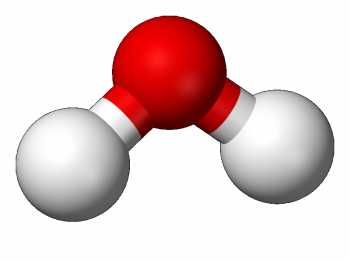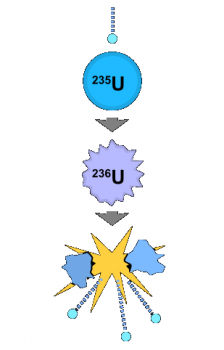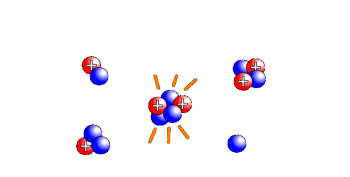A nuclear reaction is semantically considered to be the process in which to nuclei or a nucleus of an atom and a subatomic particle from outside the atom collide to produce one or more nuclides that are different from the nuclide(s) that began the process. A nuclear reaction causes a transformation of at least one nuclide to another. If a nucleus interacts with another nucleus or particle and they separate without changing the nature of any nuclide, the process is referred to as a type of nuclear scattering, rather than a nuclear reaction.
Due to the low probability of three or more nuclei meeting at the same time in the same place, nuclear reactions with three or more are rarely seen. A nuclear reaction is an induced change in a nuclide and thus does not apply to any type of radioactive decay.
A natural nuclear reaction occurs in the interaction between cosmic rays and matter. Artificial nuclear reactions are employed to obtain energy at an adjustable rate on demand. There are nuclear chain reactions in fissionable materials to produce induced nuclear fission and various fusion reactions of light elements that power the energy production of the sun and stars. Both of these types of nuclear reactions are used in nuclear weapons.
© BrainMass Inc. brainmass.com June 30, 2024, 9:24 am ad1c9bdddf


